The staff at Northern General Hospital in Sheffield all speak of the same problems at work: Low staff levels, no cover for sickness and leave, additional workload and responsibility, stress levels “going through the roof”.
Some also speak of a lack of training, and many of a lack of respect from managers who fail to value anyone other than qualified staff.
And on top of all of that, is the crisis over pay.
This week, a planned strike of health members in England was suspended. This was after previous strike action by health unions forced the government to finally make an offer on pay. Our health members are now being consulted on that offer.
But regardless of the outcome of the consultation, the crisis in the NHS is not going away.
There are 3,000 UNISON members at the Northern General. Morale at the hospital, says one of our members, is worse now than when Margaret Thatcher was trying to “annihilate” the NHS.
We went to Sheffield to find out what life in the NHS is like for them now.
Photos by Marcus Rose
John Campbell, joint branch secretary
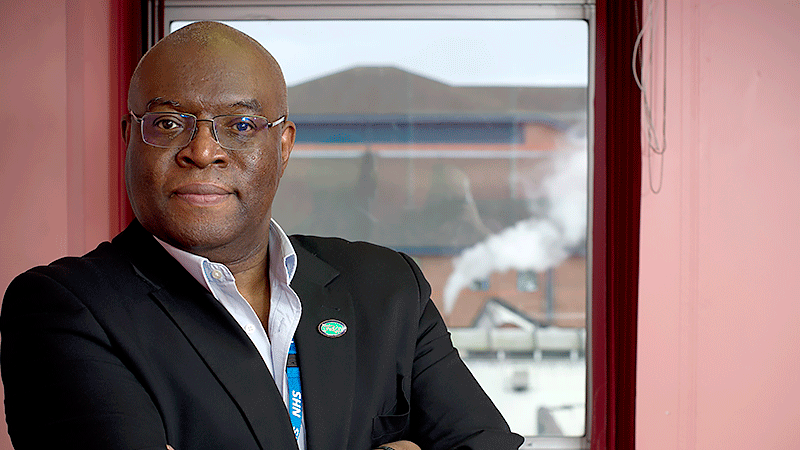
Two thirds of our members are women, and a significant number of those are single parents. They are struggling to put food on the table, which is an awful position to be in. We’ve got members who have to rely on food banks.
The staff are facing difficult and challenging times. Over Christmas, the volume in A&E was horrendous. We managed it.
With the trade unions, the hospital sent out a communication to staff asking for volunteers to work extra shifts. Our members stepped up to the plate.
Despite their adversity they have gone the extra mile when asked, because at the end of the day they care about patients.
Chris Hurd, IT
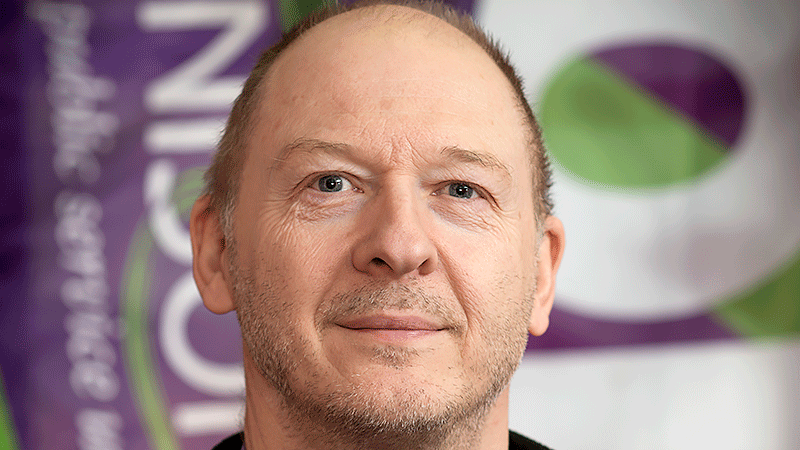
I’ve been at the top of my band for some time now. We’re told that these pay freezes are offset by increments.
But I have not had an increment in years. And a pay freeze effectively means a pay cut.
I would receive the 1%, but what’s the good of that? It’s not permanent and does not count towards your pension. It’s also driving a wedge between people. They’re trying to pay some of us off to keep quiet.
We’ve reached the untenable situation where the current government thinks the country can run without pubic services – that it can leave services in the hands of a private sector motivated by profit. And it can’t.
Christine Jepson, domestic
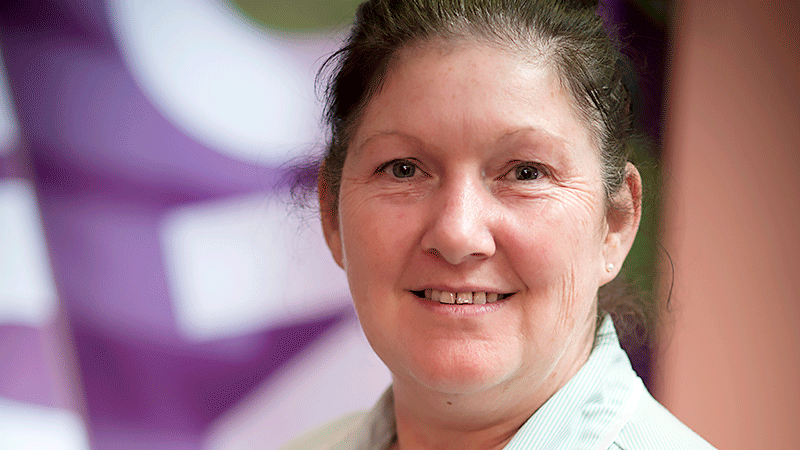
Domestics are on the lowest band. Lots of people are struggling. We’ve not had a decent pay rise for five years. Everything else has gone up – doubled, trebled in price. We should not be working and be in poverty.
It’s pretty grim. We’re fed up with grimness.
We get one weekend in six off, one weekend in six to spend with our families. At the moment, we at least receive unsocial hours pay.
But now the government is saying that the NHS needs to come into the 21st century and unsocial hours pay needs to be stopped.
That’s fine if you are salaried and earning a decent wage. But unsocial hours is our mortgage payment. As if it wasn’t bad enough, now this.
All we are asking for is a decent wage for what we do.
Lisa Locker, domestic
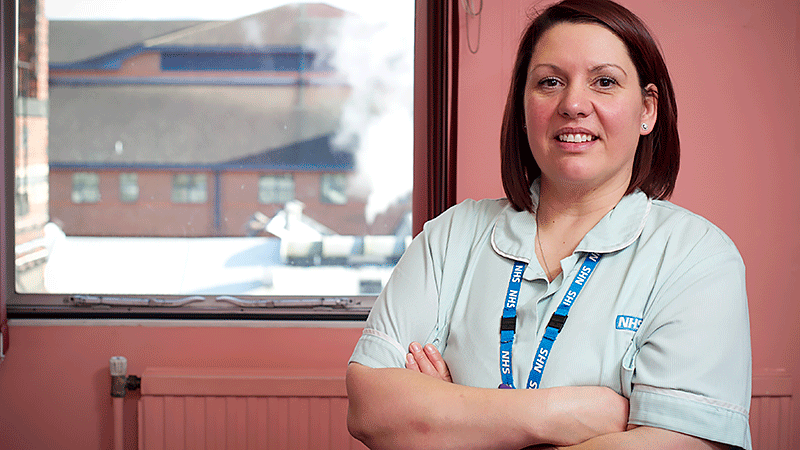
Some people have the choice – pay the mortgage or buy food. They can’t do both.
Until last February we were paid weekly, which really helps. But then the trust said they wanted to pay us monthly. We fought for 12 months against it.
But we were told by HR that if you don’t sign a new contract and go onto monthly pay you will be made redundant.
We couldn’t win. Then we had to wait for six weeks for our first pay check – and had to borrow from the employer to tide us over.
It feels like because we’re on the lowest pay we don’t count. It’s crucial for everyone to stand togetherWe care about the ward. We feel responsible. But we are really struggling for money.
Sue Crowder and Debra Neall, doctor support workers
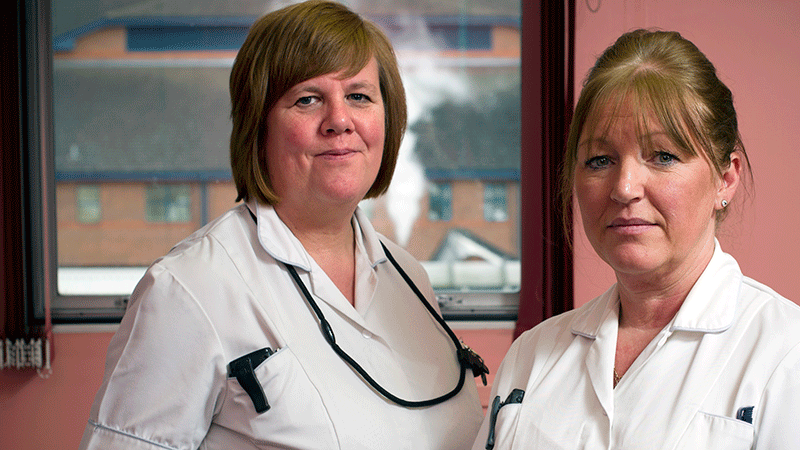
Sue: The pay I get is not a bad wage. But we still struggle, hand to mouth.
It would be nice to have just that little bit extra.
Debra: One per cent is modest. It’s not extortionate. To be honest, if they had said there’s no money to pay anyone a pay rise because the country is in dire straits, that would be fine.
I would accept my lot for this year. But the fact that the government is paying itself 11% is just a kick in the teeth. That makes me feel that I’m not worth anything. That’s my reason for striking.
Sue: It feels really important to make a stand.
Paul Bingham, ward clerk, gastro-entomology ward
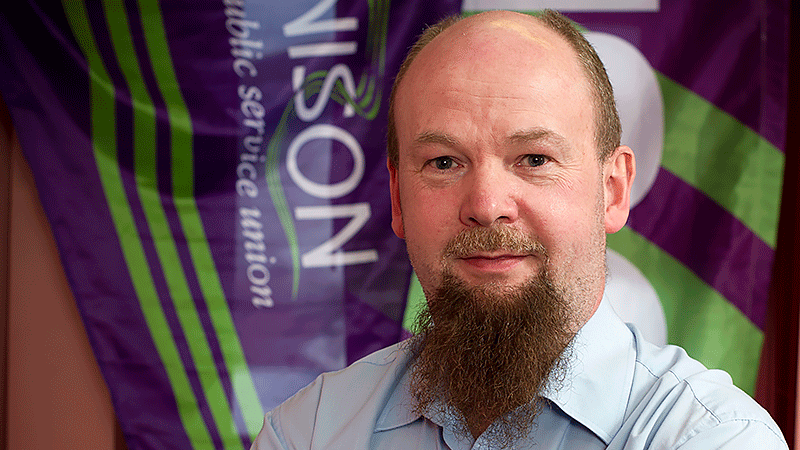
I think I do a pretty good job. But my level of pay is pitiful. I’m at the top of my band, around £17,000, which is the government’s own measure of poverty wages.
To be working full time and be paid poverty wages is disrespectful. I’m very angry.
The 1% is worthless, given inflation. If you earn a few million a year it’s not so bad. But if you are on low wages, then it’s very poor.
There’s also a point of principle here, in that the government has ignored the pay review body’s recommendation. From a personal point of view, that is very important.
Deborah Harris, ward clerk, acute cardiology
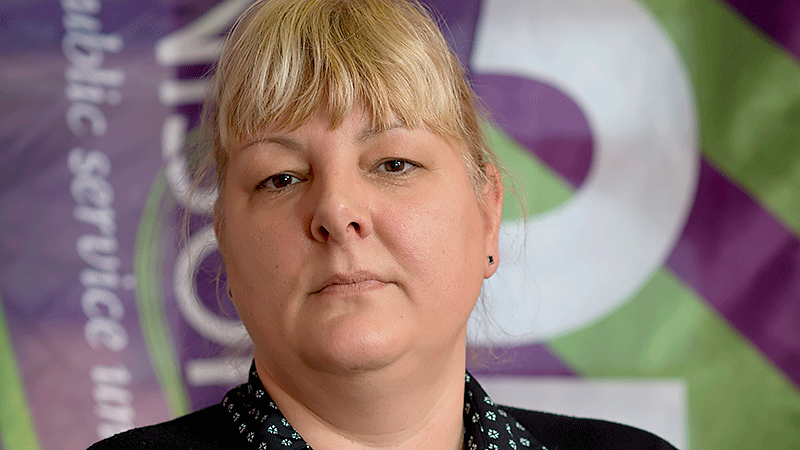
What we’re going through is what it was like under Thatcher. She tried to annihilate us. The NHS improved dramatically under Labour. Then we’ve been attacked again with this government in charge.
The morale is worse now then under Thatcher. We don’t deserve it.
I’ve found it a struggle. Because we haven’t had a pay rise for what seems like years, we have lost a helluva lot of money. It’s not about affording luxuries. It’s got the point where we can’t afford basics.
More and more of us are feeling the pinch.
And now they are quibbling about unsocial hours. When you’re here at Christmas, on bank holidays, when we’re here every night, the least they can do is pay you a little extra.
To the managers it’s all about the qualified staff. Support workers, domestics, housekeepers, the backbone, lower-grade staff who keep the wheels turning don’t matter to them.
But everybody in a hospital is frontline. Patients who use the NHS know that we are flogging ourselves to death. If everyone stuck to their job description nothing would get done. It only works because of a great deal of good will.
Les Shorthouse, staff nurse
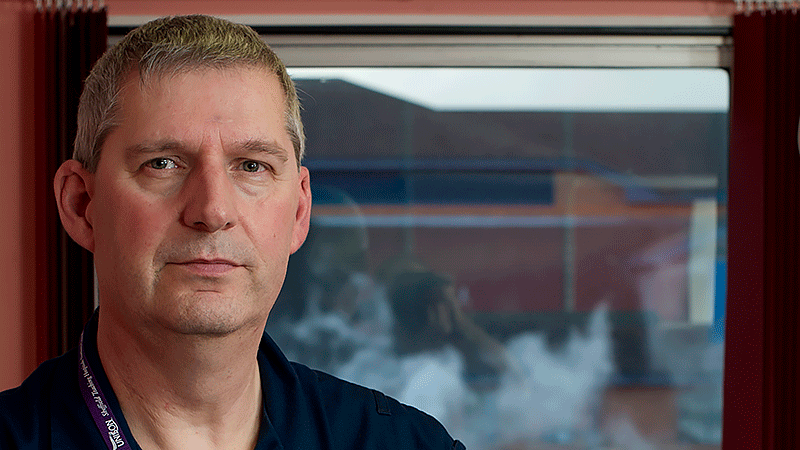
But if as a health service you don’t look after your staff, then the machine is going to break down – through low morale, through not being able to live at a standard that we all deserve. It’s just not going to work.
I don’t see myself as financially struggling. However I do want a standard of living where I don’t have to worry.
And I want that for the people who I work with, not just my nursing colleagues but everyone here. I don’t want them to have to worry about when we are going to be paid, or if they can afford the electivity or gas bill this month, because they’ve just gone up.
Yes the country is struggling, but we all have to have a decent standard of living, to be in a position where we’re not living hand to mouth.
If you’ve got no money, what have you got? You’re just living to work, paying the bills and struggling.
As a government you can’t put in place a committee to agree a pay award and then not agree with it. And then agree with your own pay rise. Morally and politically that’s not right, surely?
Before I was a nurse, I was a miner. And I was very politically active as a miner. I think it’s time again to be more active. I believe we should all stand together and fight for a better standard of living.
This article first appeared in UDigital in January 2015


